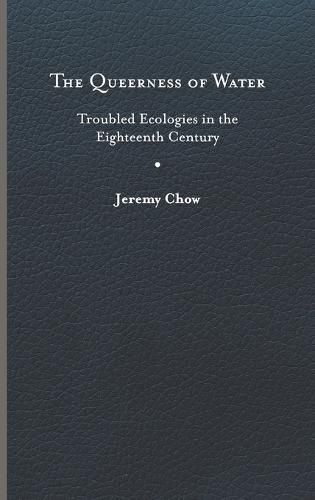Readings Newsletter
Become a Readings Member to make your shopping experience even easier.
Sign in or sign up for free!
You’re not far away from qualifying for FREE standard shipping within Australia
You’ve qualified for FREE standard shipping within Australia
The cart is loading…






This highly original book reconsiders canonical long eighteenth-century narratives through the conjoined lenses of queer studies and the environmental humanities. Moving from Daniel Defoe's Robinson Crusoe and Jonathan Swift's Gulliver's Travels to Gothic novels including Mary Shelley's Frankenstein, Jeremy Chow investigates the role that bodies of water play in reading these central texts.Chow navigates various representations and phases of water to magnify the element's furtive yet pronounced effects on narrative, theory, and identity. Water, Chow reveals, is both a participant and a stage upon which bodily violation manifests. The sea, rivers, pools, streams, and glaciers all participate in a violent decolonialism that fractures, revises, and reshapes notions of colonial masculinity emerging throughout the long eighteenth century.
Through an innovative series of intermezzi, The Queerness of Water also traces the afterlives of eighteenth-century literature in late twentienth- and twenty-first-century film, television, and other popular media, opening up conversations regarding canon, literary criticism, pedagogy, and climate change.
$9.00 standard shipping within Australia
FREE standard shipping within Australia for orders over $100.00
Express & International shipping calculated at checkout
This highly original book reconsiders canonical long eighteenth-century narratives through the conjoined lenses of queer studies and the environmental humanities. Moving from Daniel Defoe's Robinson Crusoe and Jonathan Swift's Gulliver's Travels to Gothic novels including Mary Shelley's Frankenstein, Jeremy Chow investigates the role that bodies of water play in reading these central texts.Chow navigates various representations and phases of water to magnify the element's furtive yet pronounced effects on narrative, theory, and identity. Water, Chow reveals, is both a participant and a stage upon which bodily violation manifests. The sea, rivers, pools, streams, and glaciers all participate in a violent decolonialism that fractures, revises, and reshapes notions of colonial masculinity emerging throughout the long eighteenth century.
Through an innovative series of intermezzi, The Queerness of Water also traces the afterlives of eighteenth-century literature in late twentienth- and twenty-first-century film, television, and other popular media, opening up conversations regarding canon, literary criticism, pedagogy, and climate change.